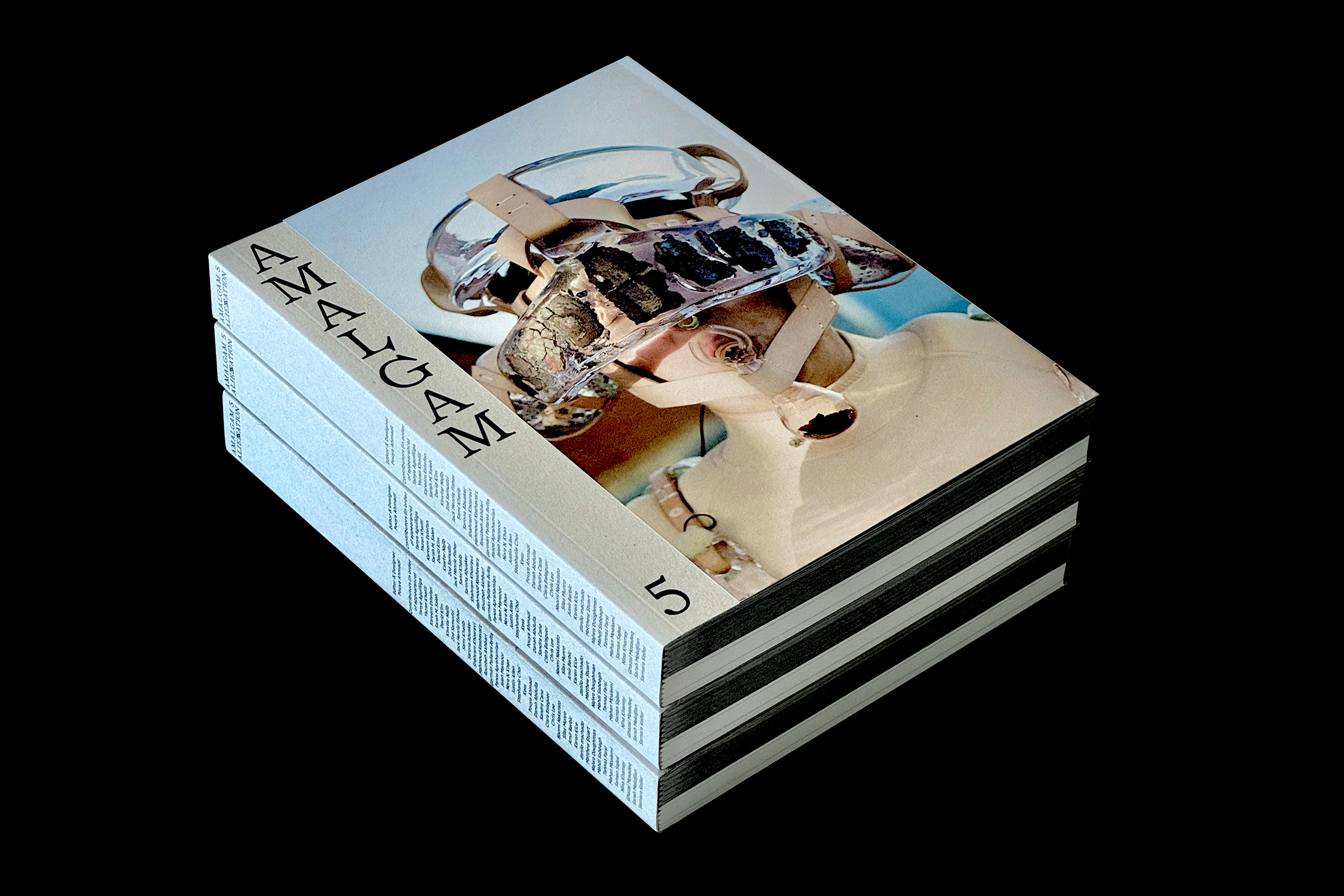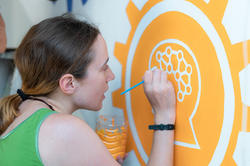Four ongoing research projects by faculty and recent alums focus on composting, improving the visual data used to drive climate research, sustainable biomaterials and tenants’ rights.
RISD Grants Support Artists and Designers Working in the Arena of Forced Displacement

According to the UN Refugee Agency, an estimated 122.6 million people around the world were displaced from their homes as of spring 2024 due to war, persecution, climate change and other disasters. The issue, known as forced migration, is bringing together activists, humanitarians and scholars working to envision new ideas, technologies and solutions that will improve the living conditions of these vulnerable refugees.
In recent months, RISD researchers have joined the effort, bringing their unique creative perspectives to the table with support from internal student and faculty grants related to research in forced displacement. “Many RISD community members have expressed interest in being part of this critical conversation,” says Associate Director of Strategic Partnerships Katherine Cooper. “RISD Strategic Partnerships is committed to exploring the impact that artists and designers can make in this arena, and we’ve developed a mutually supportive relationship with the Boston University Center on Forced Displacement [BUCFD] led by distinguished health researcher Muhammad Zaman.”
Last April, Assistant Professor Sara Jordenö, a filmmaker and visual artist who teaches in RISD’s Film/Animation/Video department, presented their ongoing research, film and book project Impermanent Passage (The Swimmer) at BUCFD’s annual border conference. Later that month, they presented their documentary film Kiki, which focuses on the drag and voguing scene in New York City, at the 60th Venice Biennale in Italy.

Impermanent Passage is a collaboration with social scientist A Horning Ruf and uses methods borrowed from observatory documentary, nonfiction experimental cinema, creative nonfiction poetry and prose, documentary performance and theater to shed light on the vulnerable “in limbo” space migrants find themselves in when reaching their host countries. At the center of the project is a young man from Afghanistan who Jordenö and Horning met and interviewed in 2016, and who after several years of contact has gone missing.
“There is a perverse burden of proof placed on the refugee: to prove their worth, trigger empathy and pitch a good story about their own human rights,” Jordenö explains. “In the midst of these so-called migrant crises, we might ask ourselves what exactly is a border environment? Ayelet Shachar suggests a ‘shifting border’ not fixed in time and place, but rather maintained by sophisticated legal constructs intended to control the mobility of migrants. Time—and the representation of time—is crucial to this work. It commonly takes many years to obtain asylum, and many of the refugees waiting end up committing suicide.”
Jordenö notes that the work has introduced them to RISD community members with similar passions, including recent alum Nina Martinez MFA 24 IL.


Martinez also served as a BUCFD graduate fellow last summer, conducting visual research around migrant communities in Massachusetts and Manila, Philippines. She earned a grant from RISD in support of her related project The Home We Made: The Story of the Filipino Migrant Domestic Worker, a comic book-style narrative examining the difficulties faced by migrant domestic workers, including trafficking, wage theft, abuse and separation from family.
“How might the narrative of one reveal the story of many?” Martinez’ project asks. “How could the visual-textual form of the comic help record the Filipino domestic workers’ history?”
The project focuses on the Damayan Migrant Workers Association, which was founded in 2002 by Linda Oalican, a Filipino migrant domestic worker, activist and labor abuse survivor. Led and staffed by migrant workers, trafficking survivors and their children, the organization seeks to empower community members by providing legal assistance, health services, financial aid and education about their civil rights. “My goal in creating the project was to use illustration as a tool for committing to memory the untold stories of marginalized populations,” says Martinez, who is now teaching illustration at the Pacific Northwest College of Art in Portland, OR.
“RISD Strategic Partnerships is committed to exploring the impact that artists and designers can make in this arena.”

RISD Associate Professor of Graphic Design Pouya Ahmadi participated as a lecturer at BUCFD’s interdisciplinary summer school on forced displacement in Belgrade, where he explored themes central to his research on language and migration. His workshop contributed to the development of Amalgam’s fifth issue.
Amalgam is a journal that investigates the evolving relationships between typography, language and cultural expression. Through a transdisciplinary approach, Amalgam fosters critical engagement with how written and visual forms shape meaning and interpretation.
Amalgam #5, launched at MISSREAD (the Berlin Art Book Fair) in October 2024, examines how language, design and representation mediate experiences of separation, connection and belonging. The issue brings together diverse perspectives on the ways text and typography interact with cultural and historical narratives. “The structures and materials of language influence how we understand and navigate the world,” Ahmadi explains, “shaping our ways of seeing, reading and relating.”
RISD Strategic Partnerships continues to collaborate with researchers at the BUCFD, bringing art and design expertise to the challenges faced by the growing population of forced migrants around the world.
Top image: still from the documentary film Precarious Record by RISD faculty member Sara Jordenö.
Simone Solondz
January 24, 2025


